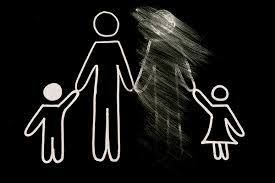Kids who are neglected, abandoned, or abused by a parent have an array of emotions that they struggle with, including sadness, anger, disappointment, distrust, etc. But not hate. Hatred is a learned emotion, not a reactive one. Most kids who have strong feelings about how a parent has treated them will say that although they have a variety of negative emotions, they also hope and wish for that parent to get better and just be what they need them to be in their lives. Sometimes that happens, and sadly it sometimes does not. We can teach kids how to cope with their negative, reactive emotions and help them learn resilience, despite their life experiences. We can also teach deficient parents how to cope with their circumstances to be better parents. But there is no coping skill for hate.
When working in high-conflict divorce cases and I hear that a child not only hates the other parent, but hates everything and anyone connected to that parent, I know I am dealing with something more than a child’s reactive emotions. When I hear that a child sees one parent as all good and the other as all bad, something called “splitting,” I know that did not come solely from their own experiences with the targeted parent. In fact, one of the major hallmarks of parental alienation is splitting because what researchers in the field have reported is that even the most abused children still have a sense that both parents have some good and some bad in them. It is abnormal, then, for a child who has experienced their parent negatively (often without any documented neglect or abuse) to split their parents in that way.
Trying to get your child on your side when you first experience divorce or separation is to be expected. Adult emotions and insecurities are high and often drive behaviors that are not very healthy. However, studies tell us that most divorce conflict should die down naturally within two years post divorce, as all family members get accustomed to their new way of life. If you are beyond that initial grief period, but still feel the need to share your negative feelings about the other parent with the child, please get some individual therapy. The consequences to a child who learns to hate a parent (the other half of himself), leads to poor self-esteem, inability to deal with relationship difficulties throughout life, and reinforcement of entitled attitudes that do not translate well into real adult life.
A child has a right to like one parent more than the other, and even want to spend more time with one parent than the other. But a child who hates is a child who doesn’t know the consequences of what he has been taught.

